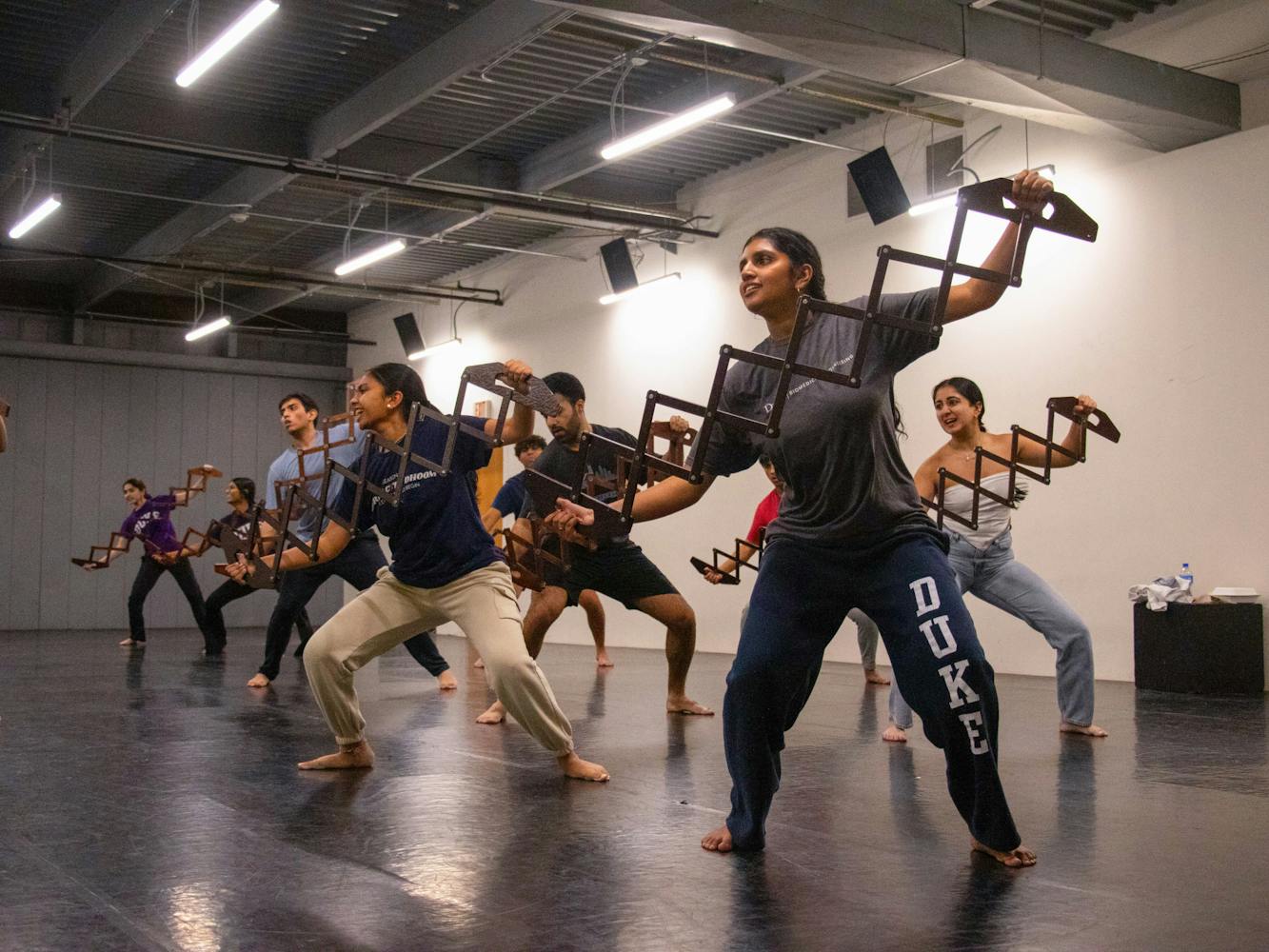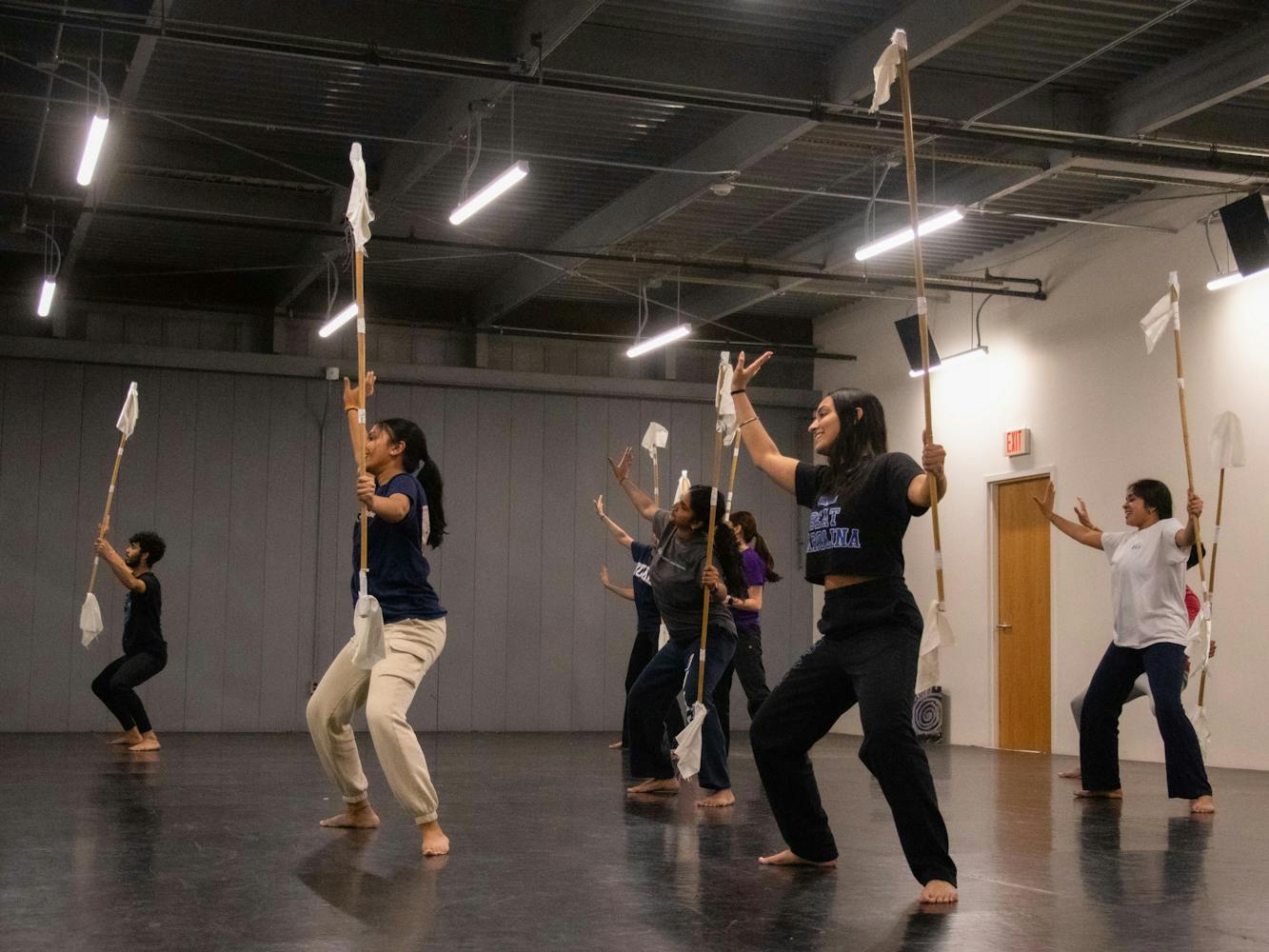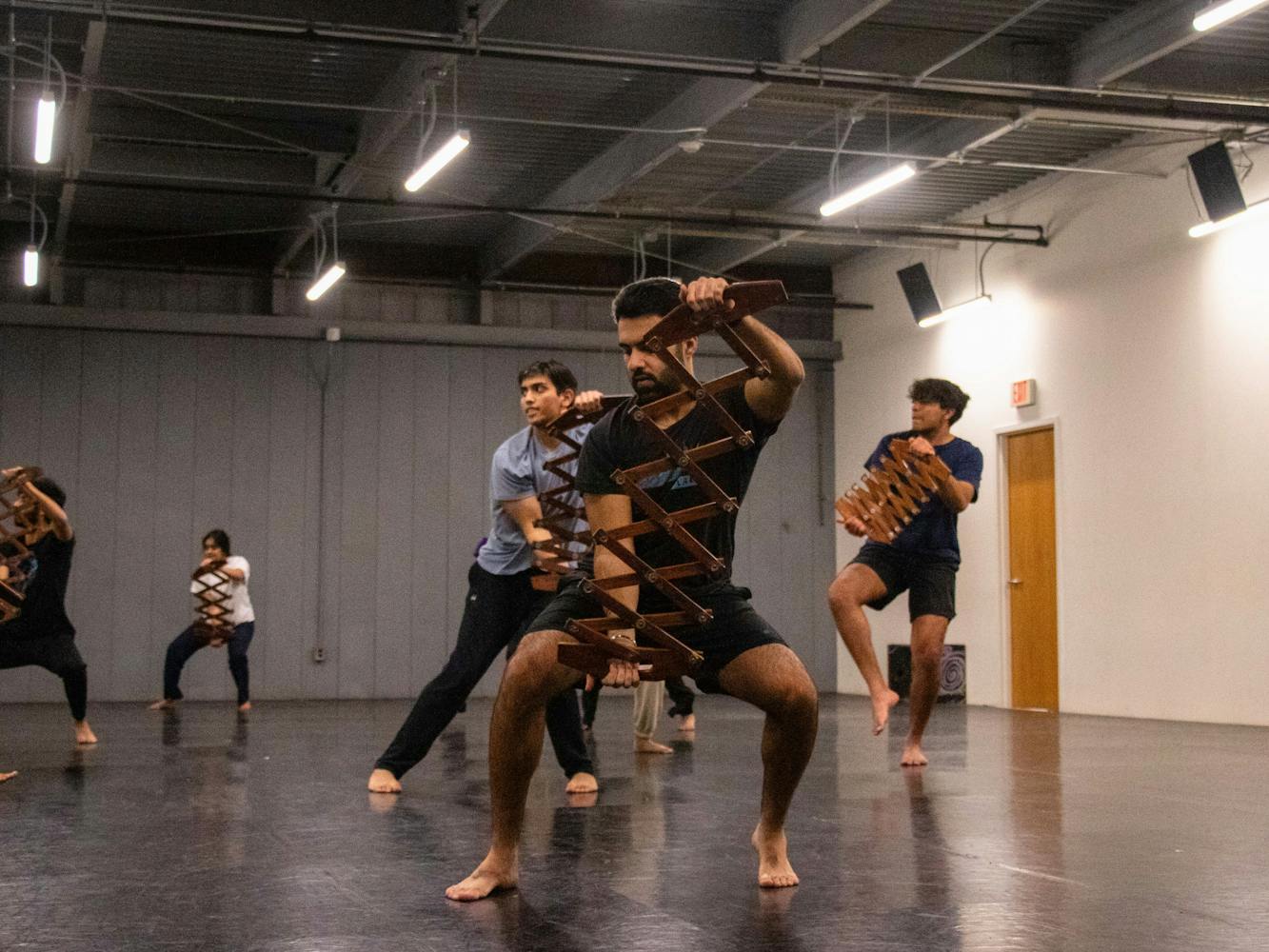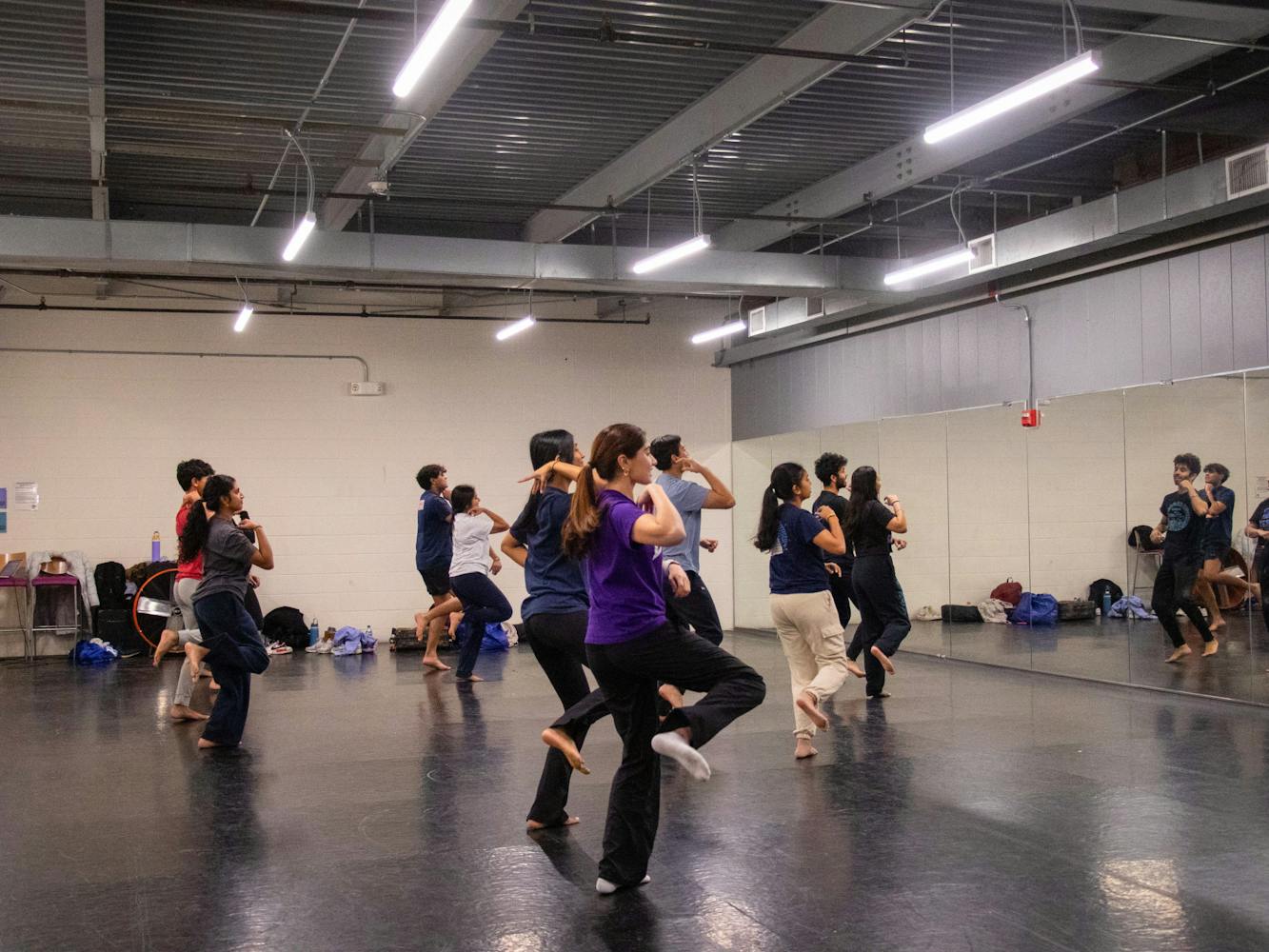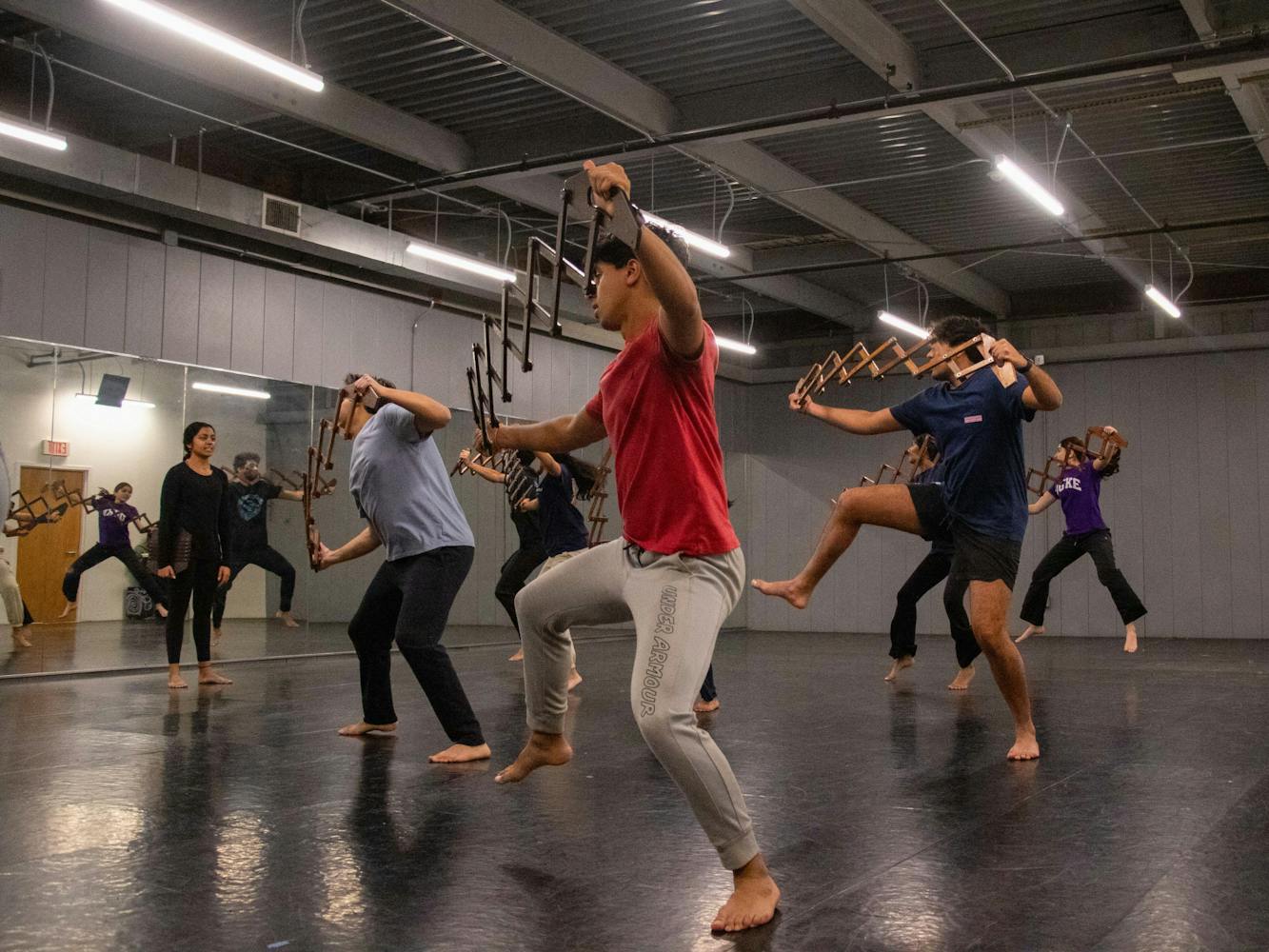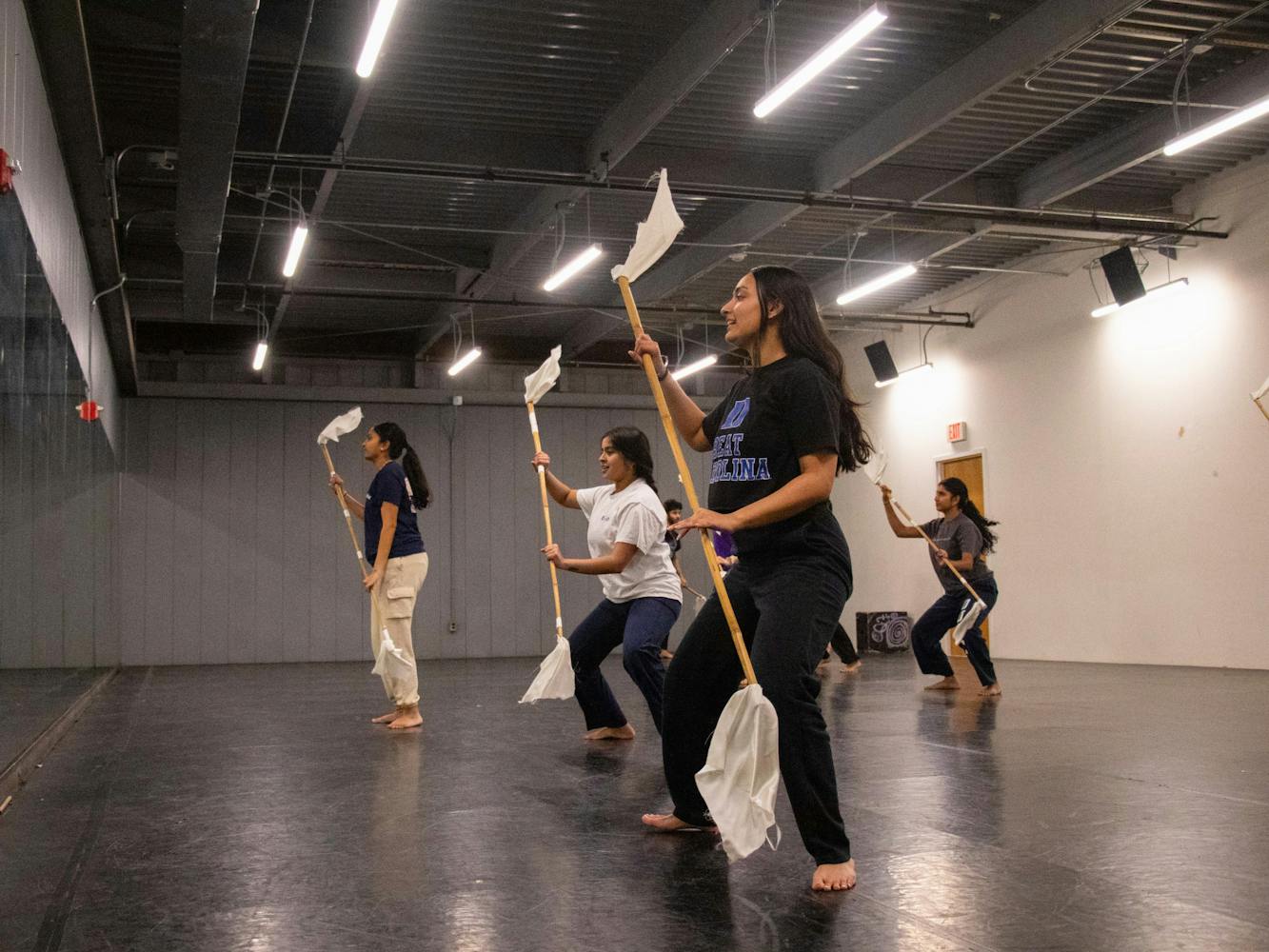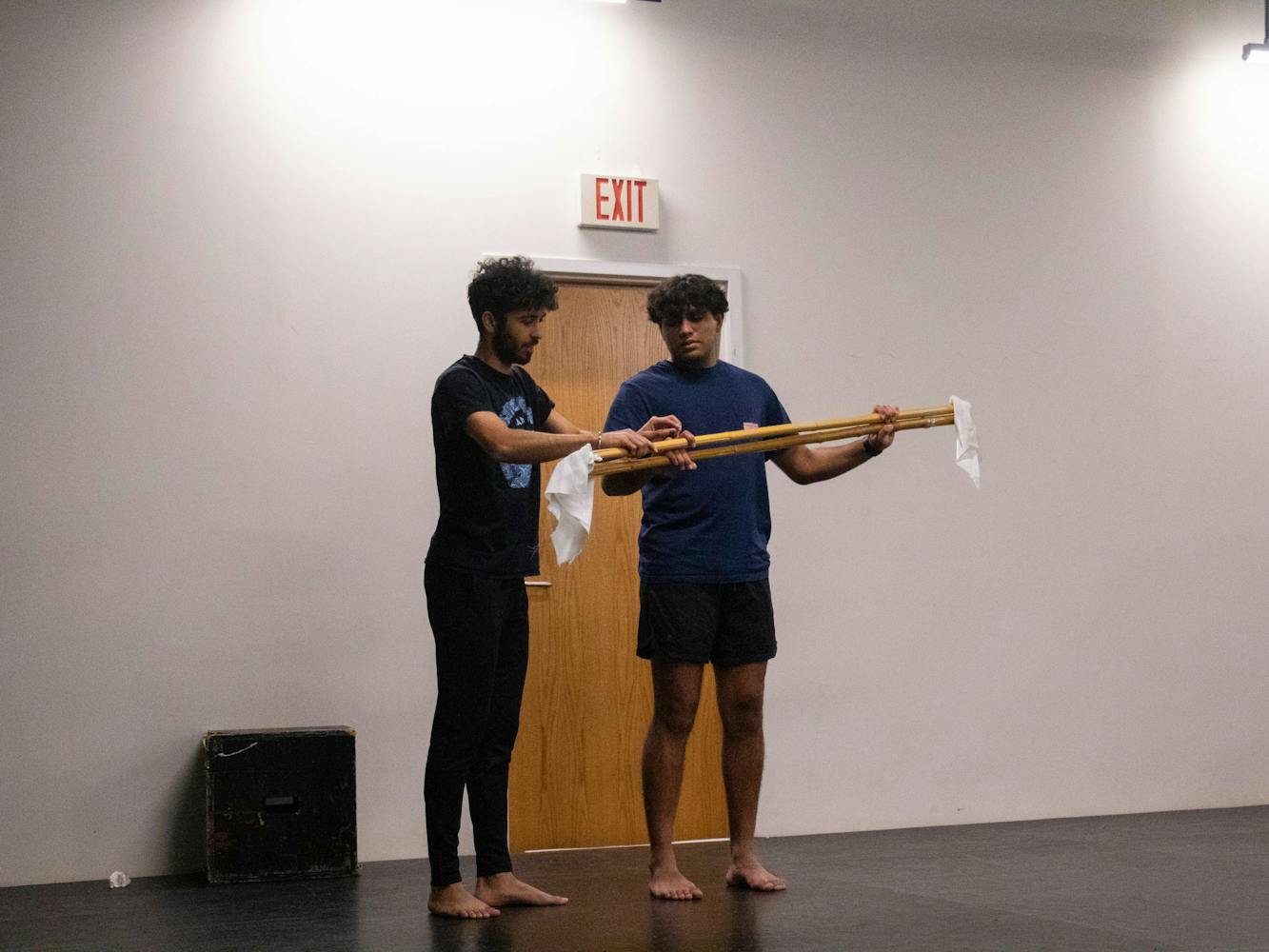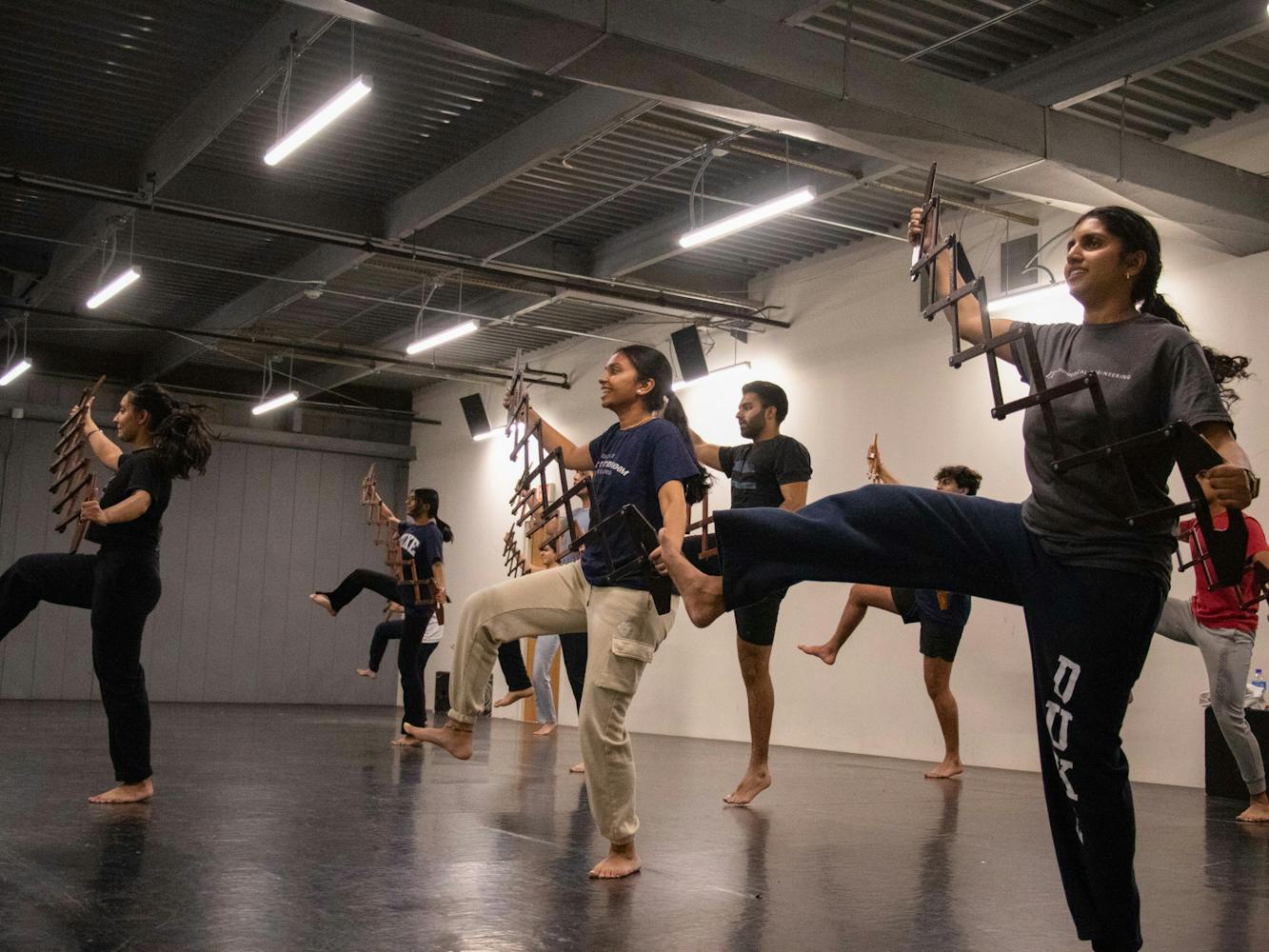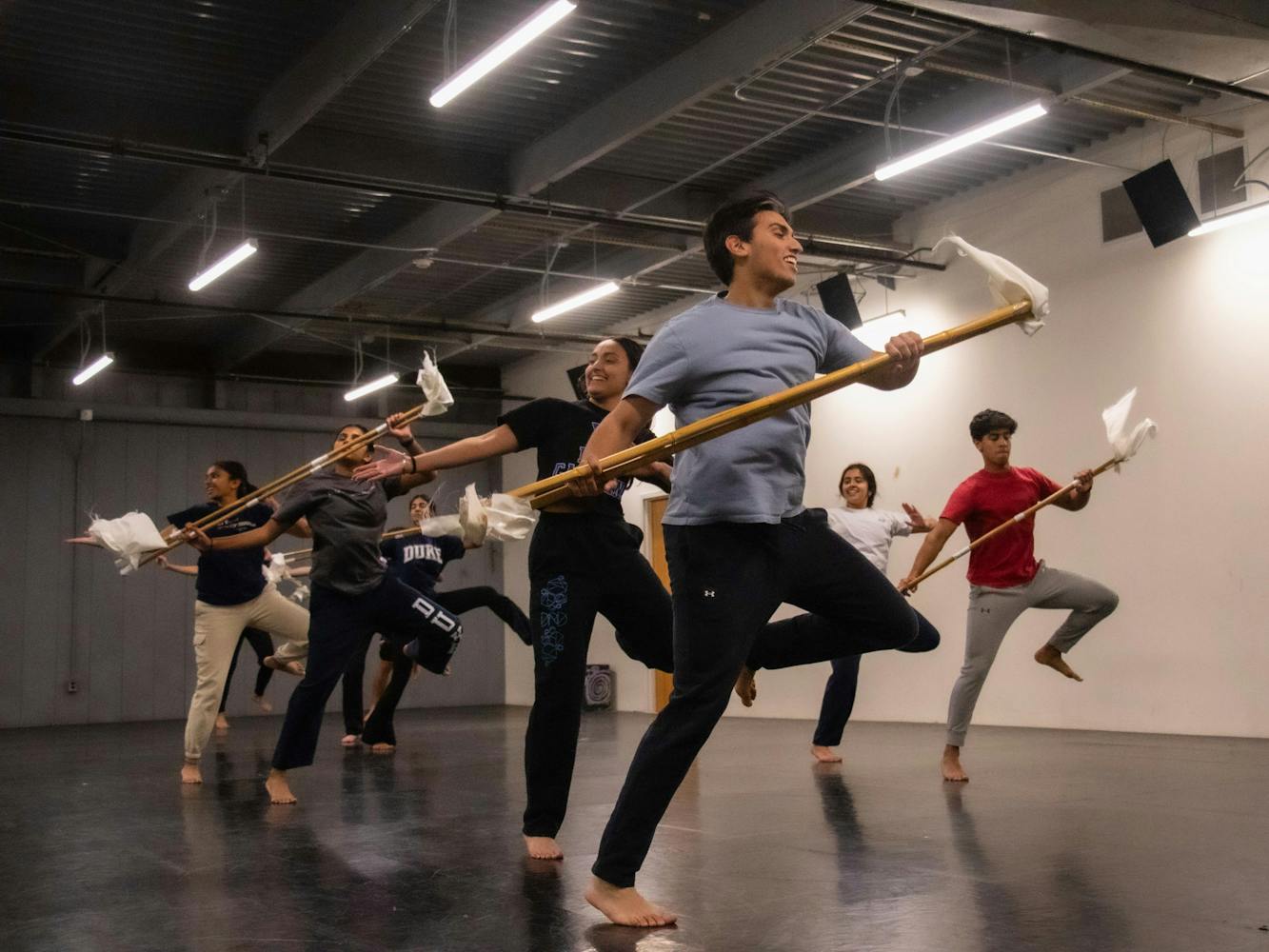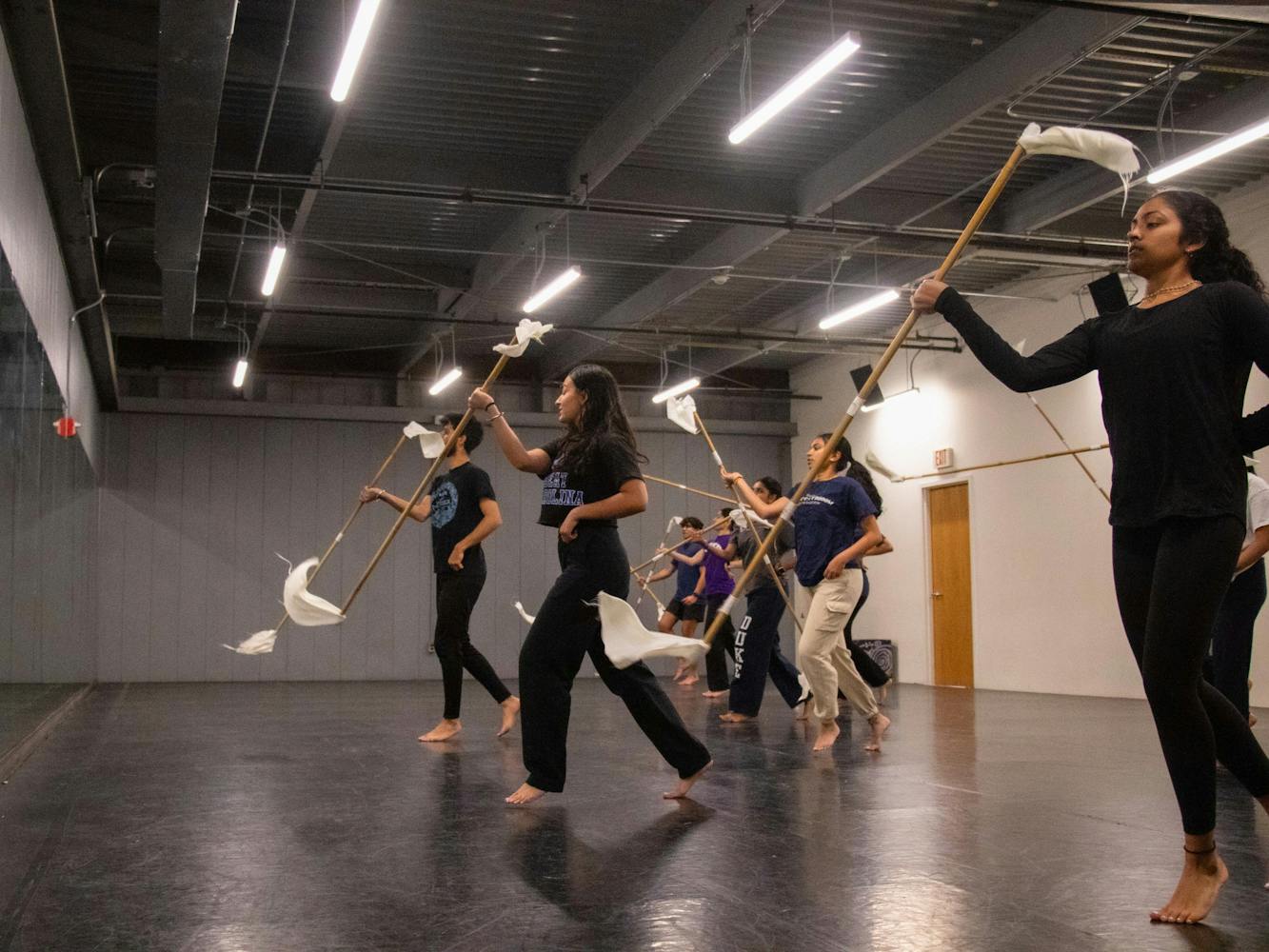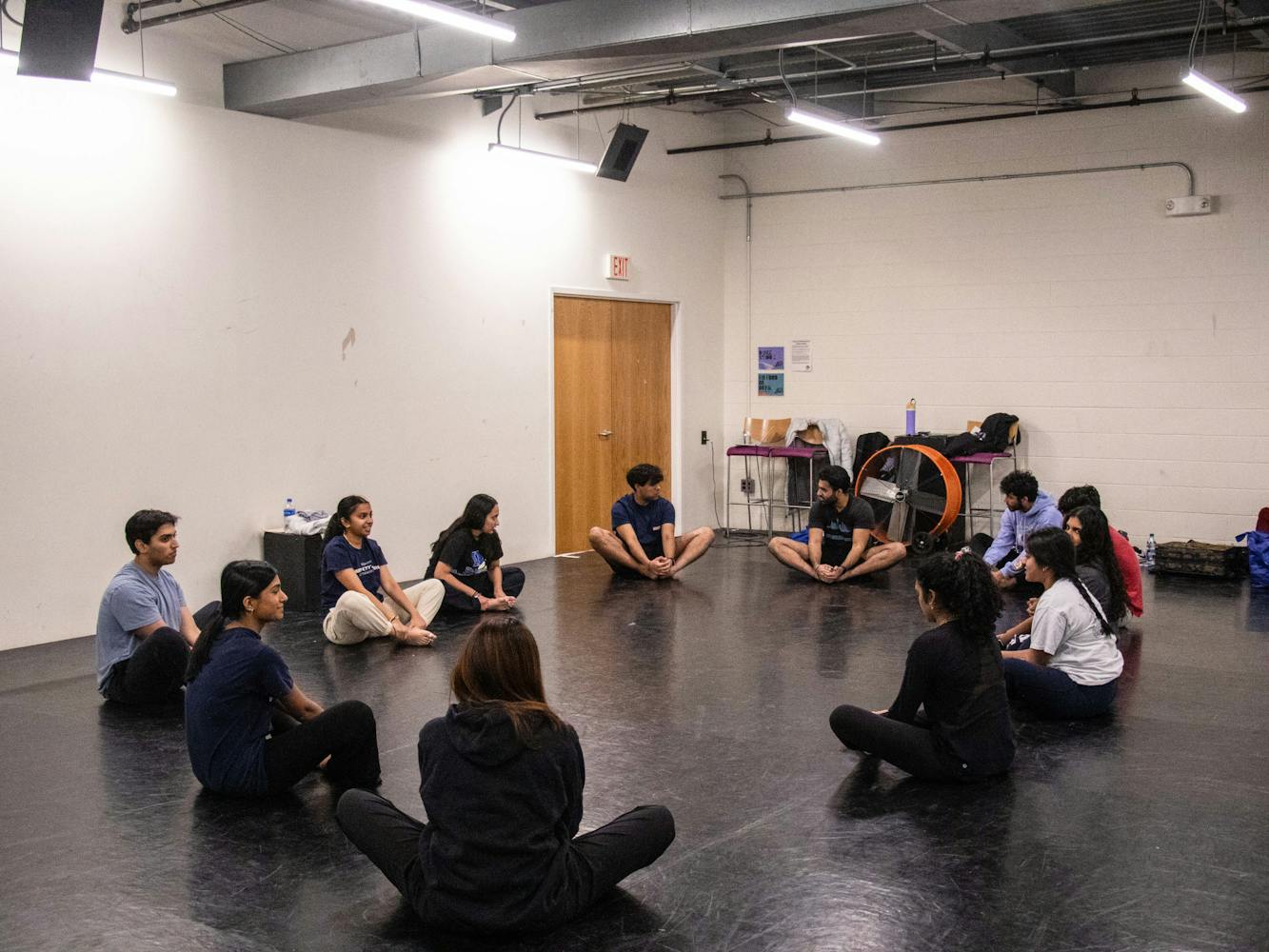Dance culture is widespread at Duke University. As the semester comes to a close and many dance groups on campus hold their Spring showcases, The Chronicle put together a look into the first five dance groups founded at Duke. Capturing their energies, their histories, and their commitment through photographs and short interviews, our reporters worked to highlight this crucial part of on-campus life.
The Chronicle spoke with Dhamaka captain Serena Raj, a senior, and assistant captain Rohan Gupta, a junior, about Dhamaka's mission and involvement with both the Duke and Durham community. This interview has been lightly edited for length and clarity.
The Chronicle: Could you briefly tell me about how Dhamaka was founded?
Serena Raj: We were founded in 2003. I think students taking initiative made the group and then, as the years went on, it grew in popularity. Campus awareness must have increased, and over the years, it's become a pretty big part of the Duke community.
TC: Can you tell me about the mission of Dhamaka?
SR: Bhangra has really deep foundational roots in Indian history, especially in North India. The dance was created for the farmers that lived in North India as a harvest celebration, so it has a lot of historical meaning, a lot of cultural meaning, that a lot of people aren't really aware [of].
When you see Bhangra, you see excitement, you see energy, and that's what you relate it to, but the dance means a lot culturally and historically. So through all of our efforts, through all of our dances, through all of our performances, our goal is to carry that history on and spread awareness, wherever possible, of the dance style itself, because a lot of people aren't aware of that too, [and] of the history and the culture.
Rohan Gupta: Even some of the props we use are related to that; everything is based on that culture. And it's just really important that, as Dhamaka, as we carry out the dance, that we're also carrying out the culture.
TC: Tell me about some of the traditions or events that you organize.
RG: We have a lot of different events that we do on campus. We participated in Awaaz, which is our biggest South Asian showcase at Duke. And we normally put a three- to four-minute performance on what we're working on. We have one set for the whole year, but we have around three or four segments for Awaaz. After that, we normally do a workshop a semester. We make choreo and teach it, and it's really fun and we sometimes have food.
Sometimes we have different social events. We have a day that we go to Sky Zone, or one time we had a dinner with Indian food. Outside of that, we've participated in other showcases on campus ... We also go and perform at competitions and other showcases outside of Duke.
TC: You have workshops you're involved with Awaaz; are there any other ways that you interact with Duke or even like the larger Durham community?
RG: Outside of Duke, in the community, we normally go to a mela.
SR: It's this big cultural event, and it's organized by [Carolina Indian Arts]. And they typically invite a lot of the collegiate teams to come and perform ... So that's one of the big events where we go out, we're interacting with the community, we're putting on this performance for the community. We're separate from Duke at that time, so there's a lot of on-campus stuff, a lot of helping out a lot of teaching here. But then also, whenever we go to a competition, that's far, but a lot of Durham [and] Triangle stuff too.
TC: How has your membership, as a part of Dhamaka, affected how you experienced Bhangra and Indian dance as a whole?
SR: I danced before I came to college, but it was a style very different from Bhangra. It was a very traditional South Indian type of dance. Then my sister came to Duke, and she joined Dhamaka. She became a captain, all while I was still in high school. So I got to experience that through her first, and then [by] coming [to] Dhamaka, and then later becoming a captain — it's just been a completely different experience.
You end up feeling so connected to the culture, and the dance you grow such a strong appreciation for it. Even selecting the music, coming up with choreo, learning the choreo, teaching, there's just so many aspects that you become aware of once you join the team, regardless of if you're a captain or not there's just so much more exposure and appreciation that comes out of being a member of Dhamaka.
And I think it's really special. You really only realize once you're in it how much things can change and how much your view of these things can change.
RG: I didn't dance before college, but I was exposed to Bhangra a little bit. I never actually danced it, but I used to watch performances sometimes. My brother used to go to UNC, and he used to take us to their show, their competitions and stuff. I knew in high school or when I was applying to Duke that I wanted to join Bhangra.
So it's just been the best decision of my life because I was really bad my freshman year ... It's just really nice to see that, we joined a really tight-knit community where we have so many of our friends, but also just a collective love for dance, and that’s how I learned.
That's how a lot of people who join Dhamaka and didn't know dance at all learn how to dance, because there are so many people that are older than you that you're such good friends with, and they also want you to succeed. And I feel like we're trying to also carry that same vision that those seniors gave to us, and we're trying to do that to our freshmen too. We've made such a nice community of people who care about each other and also just feel connected to the culture. It just feels like it's such an important part of our lives, and we just love Dhamaka a lot.
Get The Chronicle straight to your inbox
Signup for our weekly newsletter. Cancel at any time.

